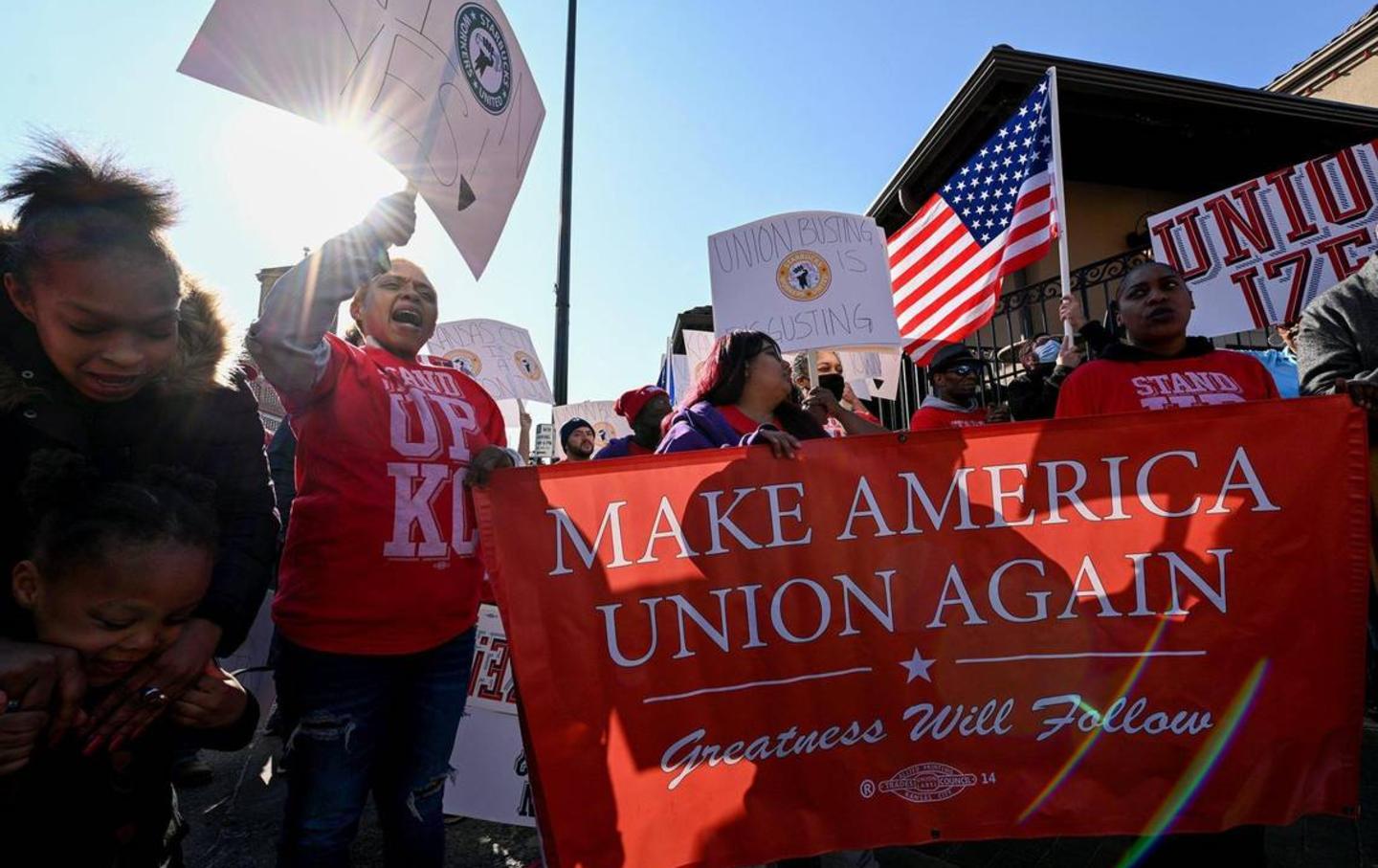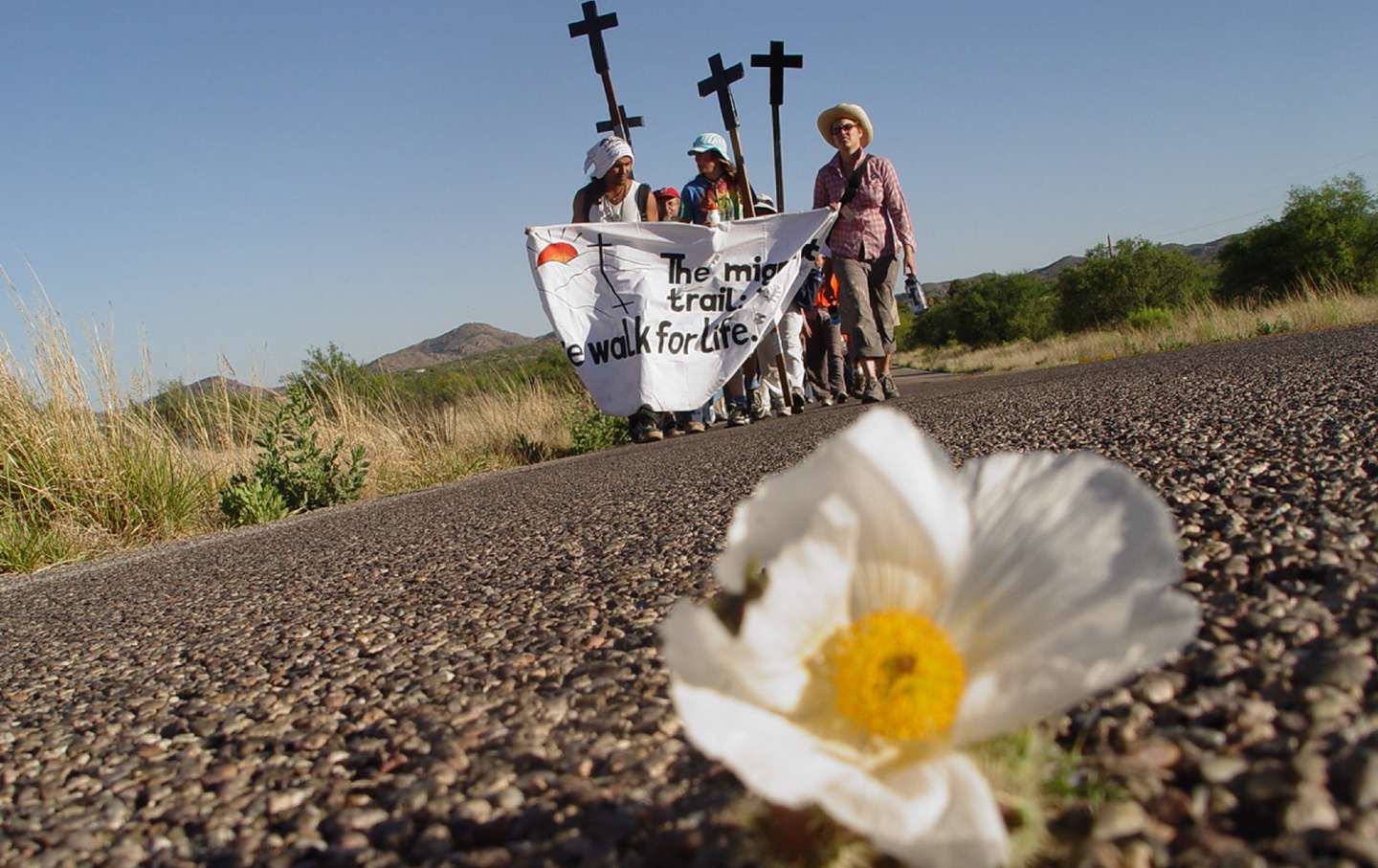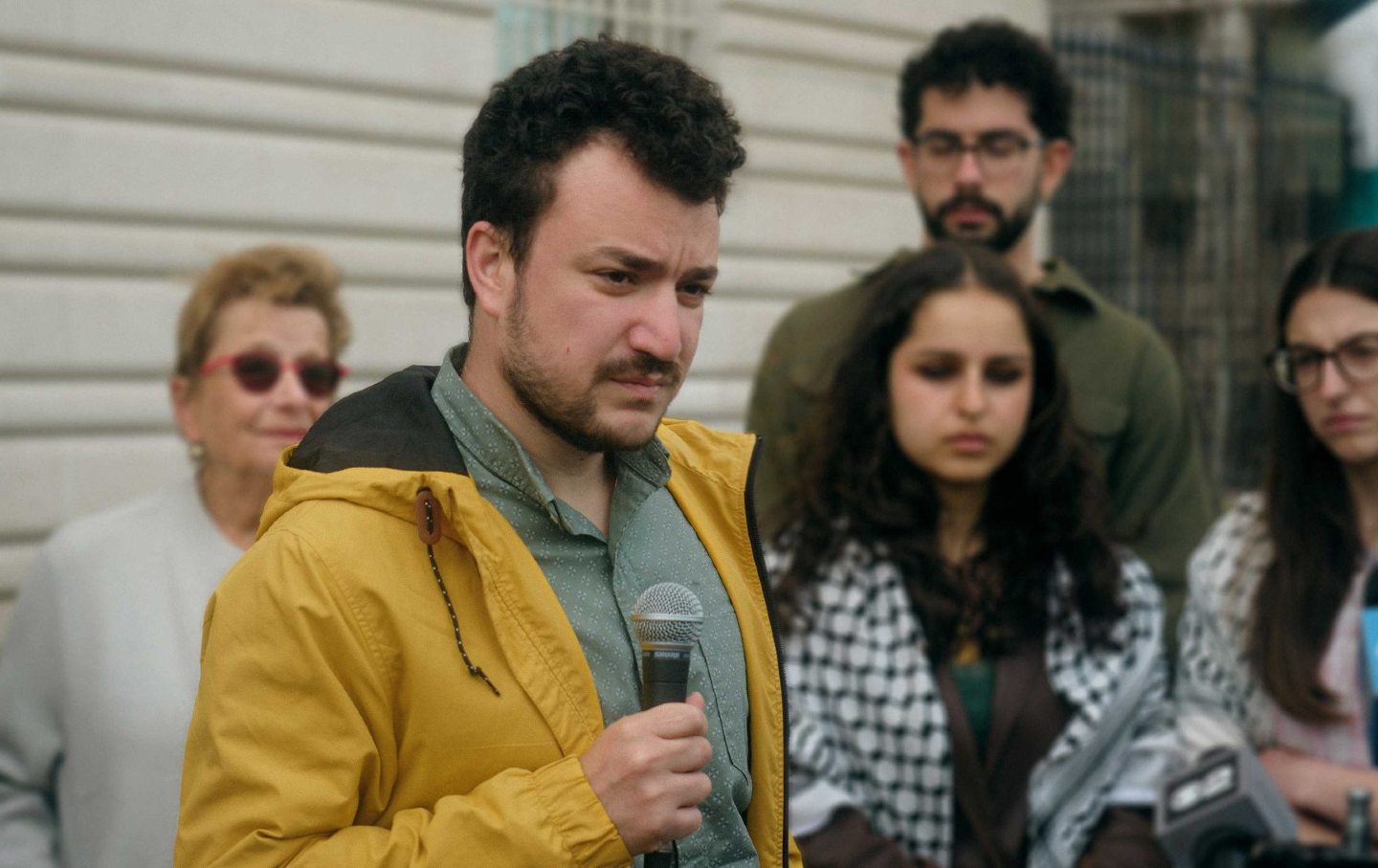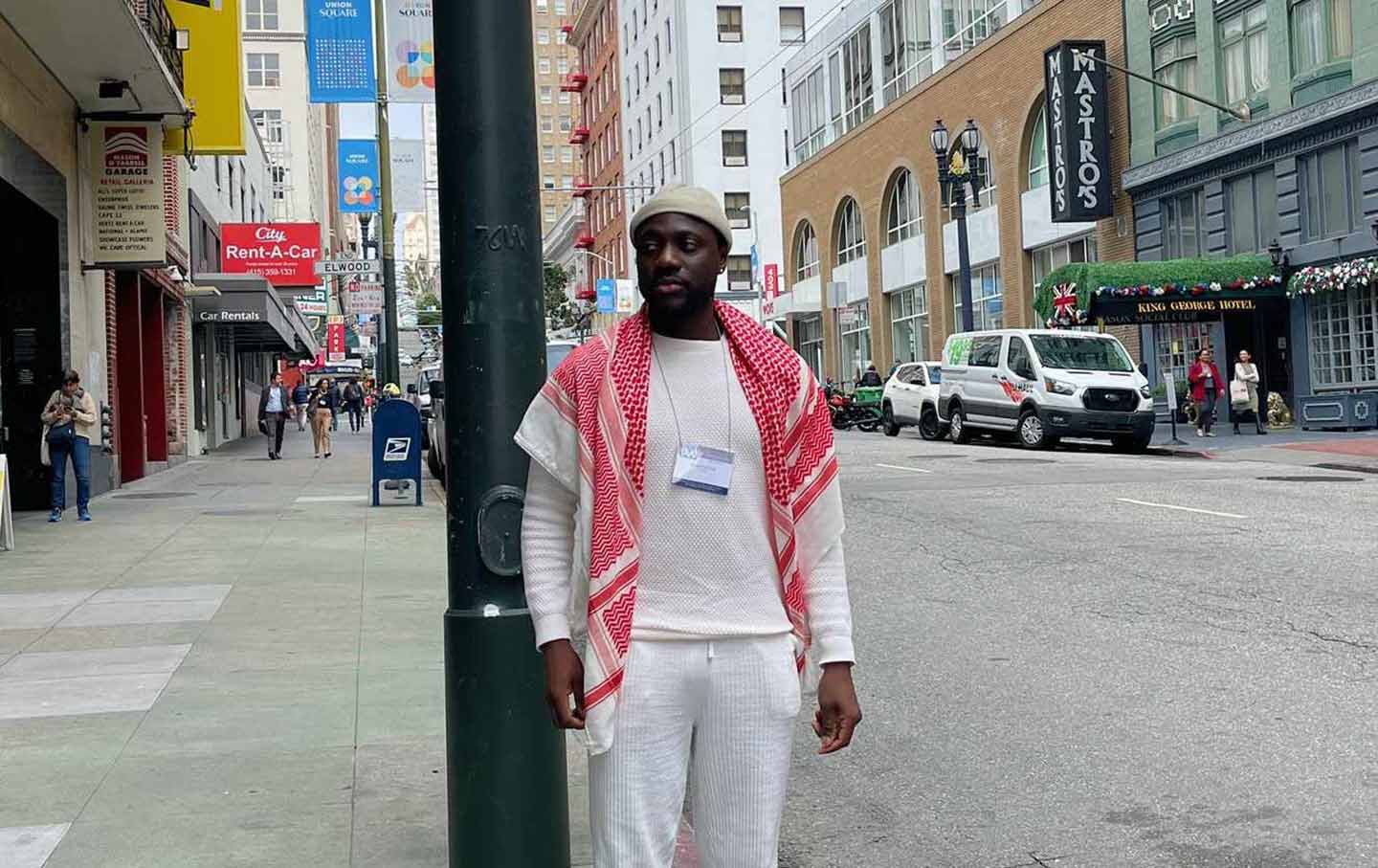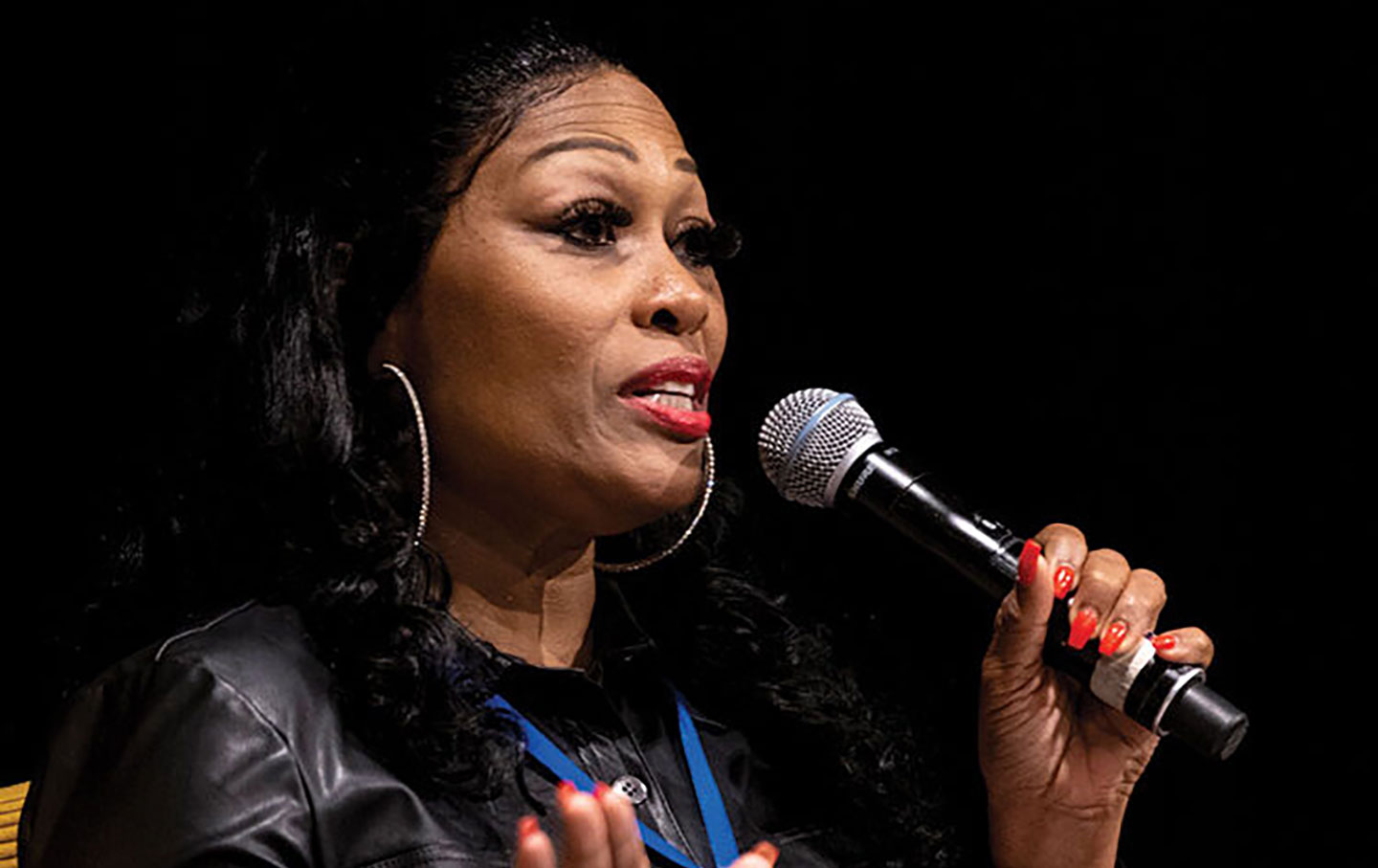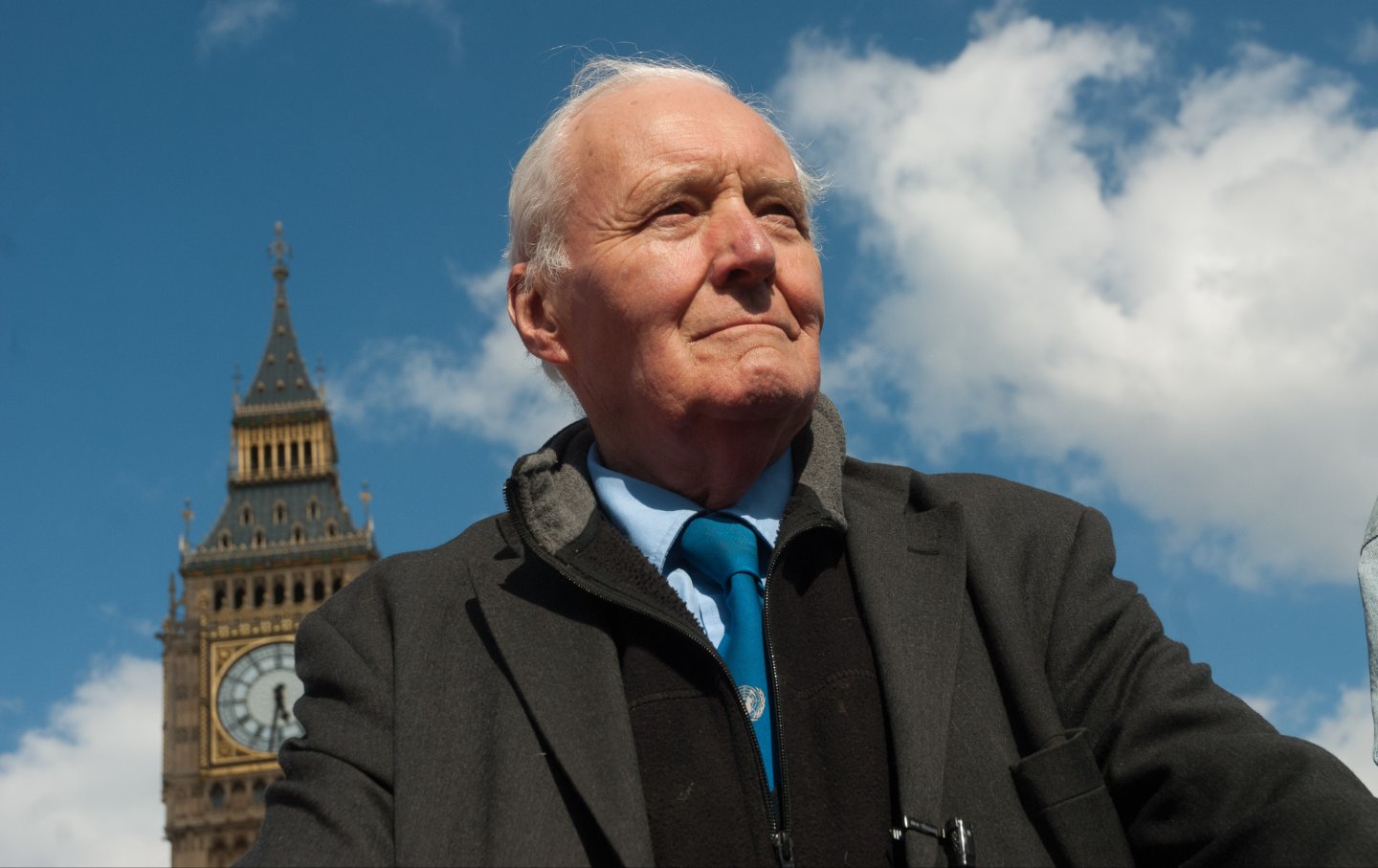Princeton Students Join the Gaza Solidarity Movement
The attempts to intimidate students underline something ominous: the erosion of democratic principles.
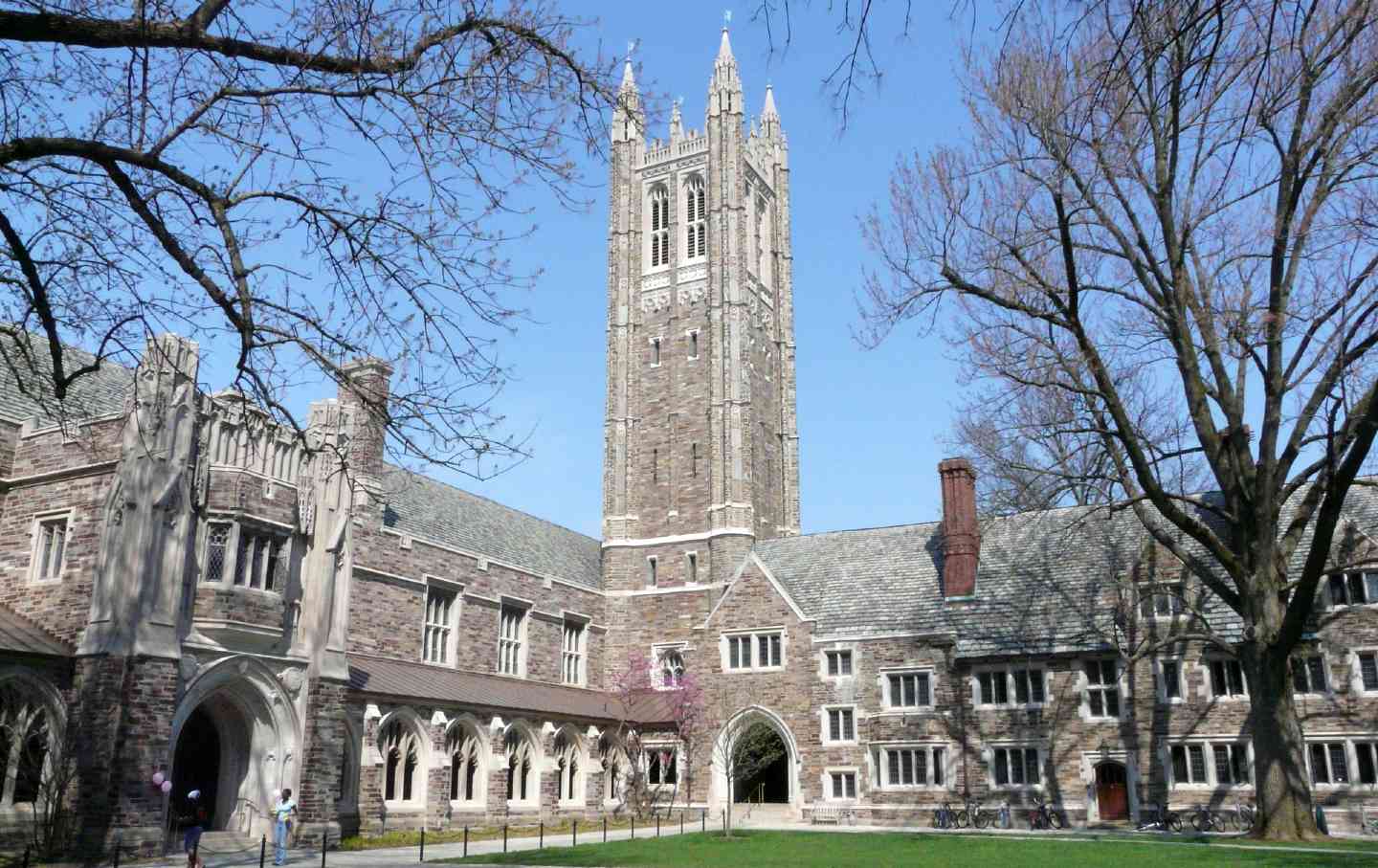
Princeton University.
(popejon2 / CC by 2.0 / Wikimedia Commons)Princeton, New Jersey—At this time of year, there is nothing unusual about billowing pink and white blossoms set against the gothic architecture of Princeton University. What is less usual, and is making a different and potentially lasting impact, is the ongoing gathering on a small lawn between the University Chapel and McCosh Hall. The sometimes politically apathetic student body of Princeton has joined the ranks of students around the country expressing solidarity with Palestinians in Gaza.
It’s worth underlining the students’ demands, so easily lost in the dominance of another narrative—that the protests are violent, antisemitic, and pro-Hamas, all contested talking points. The Princeton student protest, in keeping with others, calls for “an immediate and permanent ceasefire, a condemnation of Israel’s genocidal campaign against the Palestinians,” the divestment from “companies that profit from or engage in the State of Israel’s ongoing military campaign, occupation, and apartheid policies,” and that the university “refrain from association from Israeli academic institutions and businesses, and cultivate relationships with Palestinian institutions.”
The arrests and attempts to intimidate students underline something ominous: the erosion of democratic principles.
In the early hours last Thursday morning, police arrested two graduate students as they set up an encampment. While these numbers are small compared to other campuses, it moved the focus from the demands of the protests to the administration’s crackdown.
Princeton’s vice president for campus life, W. Rochelle Calhoun, had sent an e-mail making clear that the administration would not tolerate an encampment. Both students face misdemeanor criminal charges of trespassing. One of them, Achinthya Sivalingam, who was one of my students in a class on disinformation and misinformation, told me the arrest was frightening; the zip ties on her hands were too tight; sitting in an interrogation room made her think about what the consequences of the charges could mean for her. But, she said, “what gave me peace in those moments was thinking about mass graves that had been recently unearthed, that fighting for the people of Gaza was the right thing to do. I am more resolute regarding our goals; divestment is the only way to hold Princeton to account.”
She said she sees what happened to her as unjust, but the risks she took are “in the service of the demands being met, and any advocacy and support for her and other students should be in the service of those demands.” She also said she felt that the apathy at Princeton was over.
Princeton has been described as the northernmost outpost of Southern culture, and Ruha Benjamin, a professor in the school of African and American studies, described the campus as “a polite, genteel atmosphere, which erupts periodically.” She said it was important for people who saw student protests as disruptive to think about the classroom’s not being the only place for learning.
And Radhika Nagpal, a professor in mechanical engineering and robotics who taught at Harvard for 15 years before joining Princeton, said that there is a continuity to consider: “It would have been impossible for me to have become a tenured professor without the feminist movement. Every generation has to agitate and demonstrate. We are part of a long chain. And this should be a wake up call for universities, who are often behind the curve, behind the nation.” She said students need to see that how you are living is activism, and she is often reminded of Gloria Steinem’s words, “Democracy is just something you must do every day, like brushing your teeth.”
Princeton faculty support for the protests may not match the hundreds at Columbia who walked out last Monday in support of the encampment there, but upwards of 150 faculty members are lending their support. This includes sending an open letter to President Chris Eisgruber, as well as some contacting him individually.
A request for an interview with the president was declined. A special full-faculty meeting has also been requested, which is rare. It requires six faculty members collectively to ask for one. In this instance, they come from the history department, philosophy, African and American studies, architecture, geosciences, and classics. The university has not responded to this request. And time is running out in this academic year.
The annual rituals of the end of the college year are popping up on campus: Vast white tents for reunion and commencement events are now up, and one such tent overlooks the site of the protest in McCosh Courtyard. Not unlike other pro-Palestinian protests, it is called the Popular University for Gaza, a throwback to the 1960s, when the National Students for Justice in Palestine launched its campaign.
The idea, then and now, is to create spaces for popular education on campuses, and disrupt normal university operations. On day two of Princeton’s protest, the lawn had the feeling of an urgent, talky, edgy yet relaxed festival. There was a small library; there were teach-ins, talks by outside speakers, including Noura Erekat, Chris Hedges, and Linda Sarsour. And there were banners, including a young man’s Hezbollah flag that caught the eye of some on social media.. (I’m told he was a high school student.) There was also chanting, and above all, a sense of deep warmth and solidarity for a cause. And those who hold different perspectives have also been present, respectfully on the sidelines, including a student who draped himself in a large Israeli flag and a few people standing with pictures of hostages still held in Gaza.
Popular
“swipe left below to view more authors”Swipe →One of the faculty at Princeton supporting and protecting the students’ right to free assembly and speech is professor Max Weiss, who conducted his class on the history of Palestine and Israel at the site of the protest. He told me that “given the culture of the institution, a style of kinship and familiarity, it is possible that even a small show of intimidation might have quelled the protests.” That it didn’t and the students continue to gather is another sign of changed times.
In earlier decades, there was a sustained campaign at Princeton to divest from apartheid. That 16-year campaign ended with selective divestment. In 1995, a campaign to improve the social and academic experiences of Black students led to the creation of an ethnic studies department; protesters occupied the current president’s office for 33 hours, and a significant outcome of that campaign was that the school where I teach is no longer called the Woodrow Wilson School but the School of Public and International Affairs.
This current shift of political engagement at Princeton does have roots, and those who have been here for decades tell me the university has changed in atmosphere, in the student body and faculty. There is also a permanent physical reminder in the town of a radical presence. I have often walked past the house in Princeton where Paul Robeson was born. And in this moment, in which some are reminded of the McCarthy era, I am reminded of the words of that native son. When Robeson was called before the House Un-American Committee, he took the Fifth and refused to reveal his political affiliations. He said: “Whether I am a Communist or not a Communist is irrelevant. The question is whether American citizens, regardless of their political beliefs or sympathies, may enjoy their constitutional rights.”
Hold the powerful to account by supporting The Nation
The chaos and cruelty of the Trump administration reaches new lows each week.
Trump’s catastrophic “Liberation Day” has wreaked havoc on the world economy and set up yet another constitutional crisis at home. Plainclothes officers continue to abduct university students off the streets. So-called “enemy aliens” are flown abroad to a mega prison against the orders of the courts. And Signalgate promises to be the first of many incompetence scandals that expose the brutal violence at the core of the American empire.
At a time when elite universities, powerful law firms, and influential media outlets are capitulating to Trump’s intimidation, The Nation is more determined than ever before to hold the powerful to account.
In just the last month, we’ve published reporting on how Trump outsources his mass deportation agenda to other countries, exposed the administration’s appeal to obscure laws to carry out its repressive agenda, and amplified the voices of brave student activists targeted by universities.
We also continue to tell the stories of those who fight back against Trump and Musk, whether on the streets in growing protest movements, in town halls across the country, or in critical state elections—like Wisconsin’s recent state Supreme Court race—that provide a model for resisting Trumpism and prove that Musk can’t buy our democracy.
This is the journalism that matters in 2025. But we can’t do this without you. As a reader-supported publication, we rely on the support of generous donors. Please, help make our essential independent journalism possible with a donation today.
In solidarity,
The Editors
The Nation

